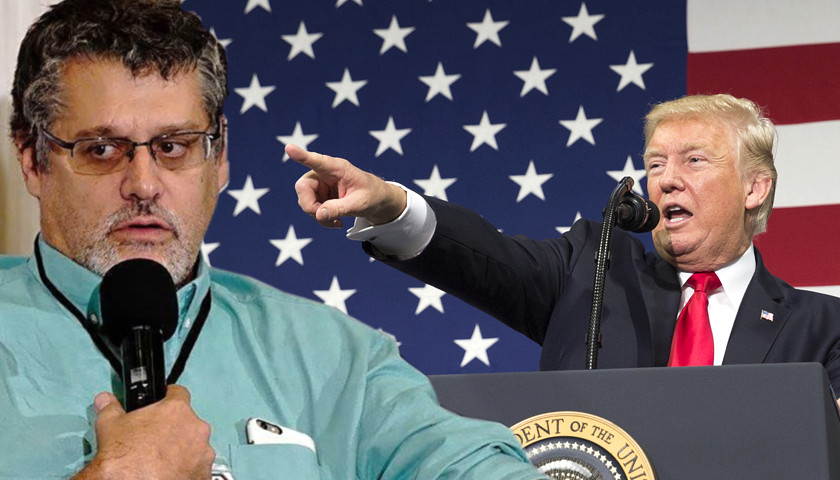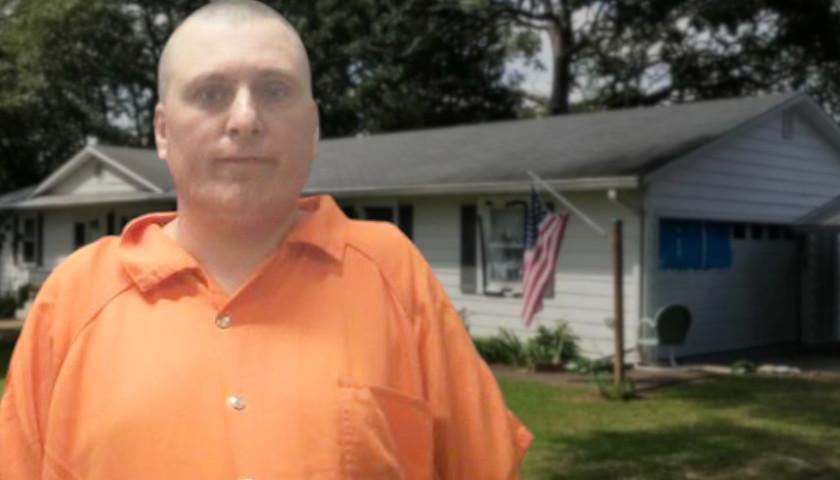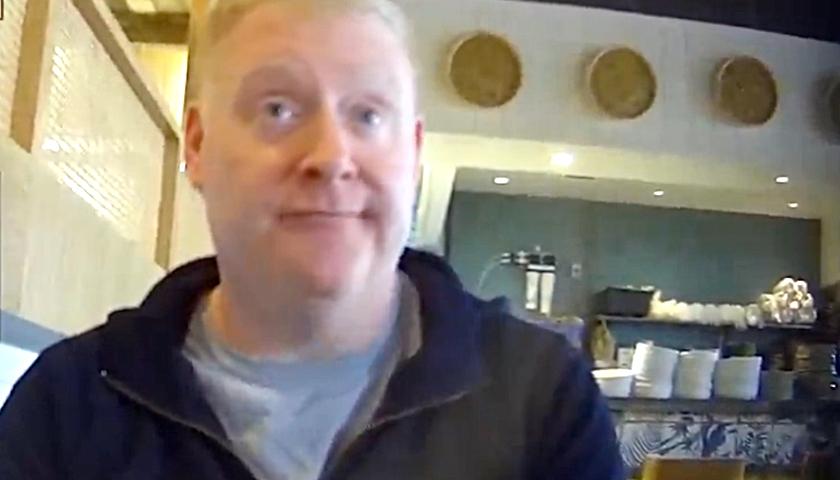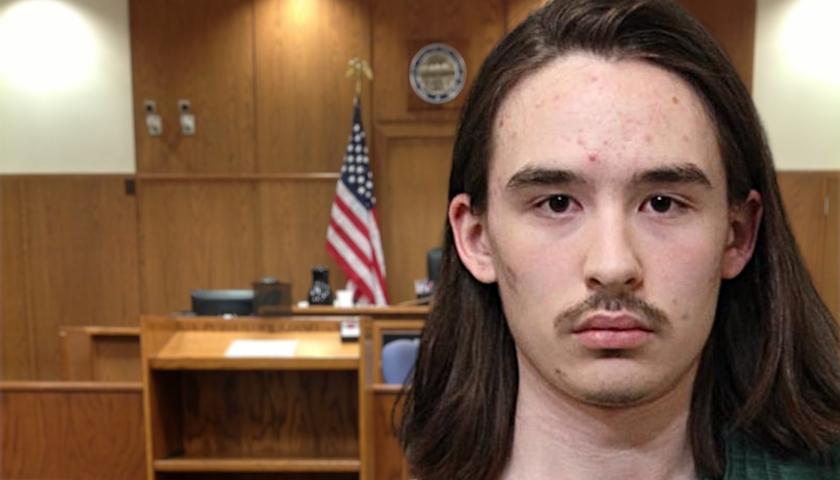From what I’ve read from the Steele dossier very little of it passes those most basic tests of sourcing. No candidate I’ve ever worked with would have paid me for such a document, unless of course they didn’t care if it was true or not.
This experience begs the question: Given the problematic sourcing, did anyone involved on the FBI or Hillary Clinton side really believe the allegations in the Steele dossier? Or was it always known to be a cynical lie?
Certainly, Fusion GPS founder Glenn Simpson went to great lengths in his testimony before the House Permanent Select Committee on Intelligence (HPSCI) to avoid saying he believed the Steele dossier was true – credible was as close as he would go.
On Page 9 of the transcript of Simpson’s testimony before HPSCI he responded to a question from Rep. Trey Gowdy by saying, “So, generally speaking, you know, what we get compensated for is producing reliable treatments of whatever the subject is.”
Gowdy later tried to pin Simpson down about the difference between fact and allegation:
MR. GOWDY: Do you draw a distinction between facts and allegations?
MR. SIMPSON: Certainly.
MR. GOWDY: What is that distinction?
MR. SIMPSON: Well, I mean, a fact is something that’s subjectively verifiable to all reasonable observers; and an allegation is something that hasn’t been confirmed.
On Pages 27 and 29 Simpson again avoids taking ownership of the truth of the material presented in the Steele dossier, his reaction was “to suspend judgment”:
MR. GOWDY: Were you able to vet or corroborate or contradict any of the sources or subsources?
MR. SIMPSON: We did get into assessing the credibility of the sources and whether they were in a position to know the things that they were saying. I didn’t ask for the specific identities of specific people. Some people, I think I know who they are for other reasons. But that’s about as much as I can say.
We did a lot bf — when the first reports came In, we did a lot of discussing of whether this was credible information. And obviously, evaluating human Intelligence is not the same thing as looking at documents. And so it’s a much trickier process and the thresholds are different. And so what you’re really trying to do, which is kind of like interviewing in journalism, is figure out whether there’s reason to think that what’s being said is credible. And so we did a lot of that.
MR. GOWDY: Can you give me an example of something that he produced to you that you found to be not credible?
MR. SIMPSON: No, I don’t think anything comes to mind. I mean, I must say my original reaction to all this was to suspend judgment.
So, the best Mr. Simpson was willing to say was that he found the material in the Steele dossier to be credible, but unverified, and in some cases unverifiable, so he was suspending judgement.
How about former FBI Director James Comey, did he believe the allegations in the Steele dossier to be true?
As our friend and former federal persecutor Andrew C. McCarthy noted, former FBI director James Comey told a Senate committee that the dossier was “salacious” and “unverified.”
Obviously, if the FBI had not verified the dossier by the time Comey testified in June 2017, then the Bureau cannot possibly have verified the dossier when DOJ sought the FISA warrant nine months earlier, in September 2016 observed McCarthy.
Yet, former Director Comey signed three of the FISA warrant applications, so which is it; was the Steele dossier “salacious” and “unverified” or did it meet the standards of the “Woods Procedures” put in place to ensure that, “By signing and swearing to the declaration, the headquarters agent is attesting to knowledge of what is contained in the declaration”?
That leads us back to former FBI Assistant Director Andrew McCabe. The Nunes memo outlining the Obama-era FISA abuses states, “McCabe testified before the committee in December 2017 that no surveillance warrant would have been sought from the [FISA court] without the Steele dossier information.”
McCabe signed at least one FISA warrant application, so, does this mean that McCabe believed that the allegations in the Steele dossier were true? And on what basis did he make that judgement, given that Glenn Simpson, who commissioned Steele’s “research,” found it credible, but suspended judgement on its truth?
And then there is Deputy Attorney General Rod Rosenstein, former Acting Attorney General Sally Yates, and then-Acting Deputy Attorney General Dana Boente who each reportedly signed one or more FISA warrant applications, and based on the non-discretionary Woods Procedures, they were attesting to knowledge [truth] of what was contained in the declaration.
All of these individuals swore to the truth of the allegations in the Steele dossier in secret filings before the FISA court, but it seems none of them will swear to the truth of the dossier under oath in public testimony.
Why is that?
After 300 political campaigns I can say one thing about the Steele dossier with some authority: It was no opposition research memo, at least as the term is understood by any political operative with even the thinnest ethical sense would use the term. It was a good old-fashioned smear that no one even bothered to pretend was true, merely “credible” to its recipients.
As our friend, investigative journalist Sheryl Attkisson put it in a recent article for The Hill, “It’s incredible to think of how many FBI and Justice Department officials would have touched the multiple applications to wiretap Trump campaign adviser Carter Page — allegedly granted, at least in part, on the basis of unverified and thus prohibited information — if normal procedures were followed.”
Attkisson quotes a former FBI agent as saying, “DOJ verifies the accuracy of every fact stated in the [FISA warrant] application. If anything looks unsubstantiated, the application is sent back to the FBI to provide additional evidentiary support – this game of bureaucratic chutes and ladders continues until DOJ is satisfied that the facts in the FISA application can both be corroborated and meet the legal standards for the court. After getting sign-off from a senior DOJ official…”
The choice, and was a choice not a failure of the FBI, not to follow procedure then begs the question where were the FISA Court judges in all of this? Did they join Glenn Simpson in suspending judgement on the veracity of the Steele dossier, or were they hoodwinked by the leaders of the Obama-era FBI and Department of Justice? And if they were hoodwinked, what are they going to do about it?
Sheryl Attkisson’s outstanding article for The Hill is the best distillation we’ve seen of how the FISA warrant application process is supposed to work, and what it shows is not just a breakdown in communication or the failure of one or two people to follow procedures – it shows that for the unverified and unverifiable Steele dossier to form the basis for a FISA warrant application there must have been not just a breakdown, but an intentional waiver of the normal constitutional safeguards supposedly in place at the Department of Justice and the FISA Court.
It seems clear to us that this was not a procedural breakdown, it is a criminal conspiracy to violate the constitutional rights of President Trump, Carter Page and various other individuals who were caught up in the net cast by the illegal acts behind the FISA warrant applications.
It is our recommendation that Congress subpoena those who signed the FISA warrant applications, put them under oath and ask them point blank, “On what basis did you believe the information in the Steele dossier to be true?”
Once that question is answered, then Congressional investigators should start working their way backwards through the chain of command at the FBI and DOJ to find out who ordered the normal FISA warrant verification and fact-finding process to be waived. Only at that point will the real extent of the conspiracy against President Trump be revealed, so that action may begin to punish those who perpetrated it.
#HEADSMUSTROLL
– – –
George Rasley is editor of Richard Viguerie’s ConservativeHQ.com. A member of American MENSA he is a veteran of over 300 political campaigns, including every Republican presidential campaign from 1976 to 2008. He served as lead advance representative for Governor Sarah Palin in 2008 and has served as a staff member, consultant or advance representative for some of America’s most recognized conservative Republican political figures, including President Ronald Reagan and Jack Kemp. He served in policy and communications positions on the House and Senate staff, and during the George H.W. Bush administration he served on the White House staff of Vice President Dan Quayle.









Only idiots believed it!